How To Be Idle
Tuesday, January 20th, 2009book review and related contemplations by Rachael
Phnom Penh, Cambodia
I’m having a read-fest; three books in four days. YAY for guesthouses with libraries and YAY for staying in one place long enough to finish a complete tome.
Some of Tom Hodgkinson’s “How To Be Idle” resonated deeply with me, especially in light of observations I’ve been making about daily life in Laos and Cambodia. Other parts jarred dischordantly. Please don’t try to tell me pornography hurts no-one. And if you’re going to quote the Bible in order to refute God, then at least get your theology right! (Work was given to man before the Fall, not as a potentially escapable punishment afterwards – and I therefore reject his basic premise, the notion that work per se, is bad). Then there are the chapters extolling drugs and drunkenness – it would be a clever man, who could convince me of the benefits of these excesses…but Tom is not the man. I have an inkling he was brought up Catholic (his obsession with guilt gives him away), and the brand of Christian religion he pits against Buddhism and other eastern faith systems is quite dissimilar from the life-giving freedom-offering purposeful Christianity I identify with. And while I can understand some of his arguments for smoking, I would rather knit, especially knowing THAT will not kill me. In a book basically about anarchistic hedonism, it really does seem shortsighted to applaud a habit that surely leads to death after varying degrees of misery.
So what did I like?
It’s anecdotal, but earlier this week I felt grotty and took myself to bed for the day, when ordinarily I would have soldiered on. Within hours I felt better, but still I lingered (with a compelling book <wink>) in bed. Complete recovery. Hodgkinson points out that throwing pills at medical problems may not always help, and that the old-fashioned concept of convalescence might actually be cure enough for many ailments. It certainly worked for me.
At the essence of this concept, and most other factors he discusses, is TIME.
Time to linger over lunch.
Time to enter into conversation, a real exchange of ideas (as opposed to impatient
waiting to have your rehearsed say).
Time to take tea (made with tea leaves, no less).
Time to rest.
Time to ramble.
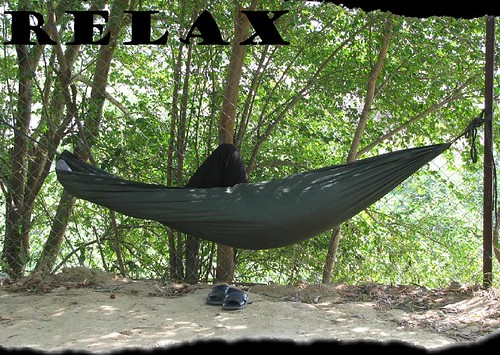
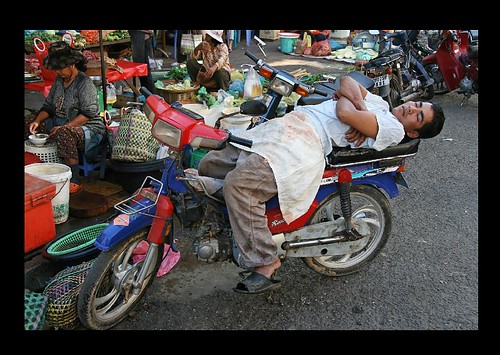
![]() The people we have met in the last two months have been time-rich. They have time to sit. They are not scared of curling up in a hammock, stretching out on a motorbike or nodding off on a plastic stool at their market stall when they need a nap. They are not driven by efficiency and productivity. They seem happy just to be together. There is little going or doing or achieving or pursuing or striving – just being. To a western mind there seems to be a “lack of ambition”, but if you step back and take the time to look again, you see contentment and community.
The people we have met in the last two months have been time-rich. They have time to sit. They are not scared of curling up in a hammock, stretching out on a motorbike or nodding off on a plastic stool at their market stall when they need a nap. They are not driven by efficiency and productivity. They seem happy just to be together. There is little going or doing or achieving or pursuing or striving – just being. To a western mind there seems to be a “lack of ambition”, but if you step back and take the time to look again, you see contentment and community.
Without the assistance of self-help gurus who fill infomercials and bookshop shelves at home, these people are achieving a work-life balance so trendily discussed in professional circles. They work and live holistically, in harmony. Observing that rural (and small town) life here is very similar to Hodgkinson’s description of pre-Industrial Revolution life, lends some weight to his arguments and leaves me feeling he is not merely indulging in idealistic romanticism. I have witnessed a genuinely holistic way of life that does not include a life versus work distinction, and it is admirable. We have stayed with people, who enjoy their “work”/life, which includes such things as running a guest house, cultivating a garden, mending clothes on their front doorstep, raising their children, enjoying the social occasion of going to market, and cooking for themselves and anyone else who drops by…..we have seen similar families with a loom set up under their houses for weaving silk, another activity to fill their days….there is variety as they go about the work of living. Their lives are interesting, inextricably linked to the seasons, connected with others. There is no need to escape.
I was intrigued at Hodgkinson’s (presumably correct) observation that “action-packed holidays” are a relatively new invention. Prior to the Industrial Revolution there had been festivals and feast days liberally sprinkled through the religious calendar, days of celebration observed by all. As people stopped working for themselves and came under Big Bosses, they lost the freedom to determine their schedules, including time off, and after a long stint of ceaseless work, holidays became a “right” in 1936, with the British government legislating a one week holiday for workers every year. We, of course, have become accustomed to far more than this, without ever (on my part) questioning its normalcy (or otherwise).
When it suits Mr H, he turns to the Bible for support, and now is one of those times. Every seven years God’s people were commanded to take a sabbatical. If there was to be no tilling of the ground for a year, it would imply having an excess stored away to see them through the year, so we are not discussing the hand-to-mouth abject poverty, which is often associated with agrarian societies.
Forget the four week annual holiday – we should have our eye on a seven-yearly year off! And as part of my religious heritage, it is entirely consistent for me to claim it! Along with the weekly Sabbath rest and celebrations honouring our Creator-Sustainer God. All of this fits in with, is part of, life. It does not require escaping from life (or work) to happen. But the way we work now (generally in a very narrow specialised field for many hours of the day, often leaving little time for anything else) pushes us to need to escape from work. “How To Be Idle” suggests finding work you enjoy and then doing only as much as is needed to earn a living, so that you have time to live as well.
This begs the question “what do we need?”
Right now ten of us are living out of three backpacks, one electronics bag and a small daypack (we have with us a few more bags full of cold and wet weather gear, which we will need all too soon, but these bags have hardly been opened as yet). Looking after so little *stuff* takes minimal effort and we have had time for plenty of family rambling. Although we walked a lot at home, we rarely covered 10km in a day, a not-unusual distance at the moment. And we would never have considered walking 3km to dinner (and three more back home again afterwards), something we did every night in Chiang Mai. We are time-rich. We can choose to wander together.
It occurs to me that it is hard to determine what you need when you have only seen one way. But it is still hard to determine what you need when you have lived with a relatively well-off family, who had hardly any of the things we take for granted as normal. It is hard, even when you have seen families with nothing at all. The solution does not magically appear. There is no formula.
It would be all too easy to slot back into NZ life, with children wanting to buy new Lego, the mother expanding our already substantial library, the father expecting to work from eight til five Monday to Friday…..
But I hope we don’t. I hope we return different. Surely we will benefit from seeing other ways of living and other ways of working out community. Surely we will benefit from experiencing that abundance of time, from charting a course together, from looking at the world through a different lens. I hope we ask ourselves what’s important, what changes we want to make to our old lifestyle, what we want to adopt from our year-of-learning. I hope we manage to work out our priorities in our own culture. We may not necessarily choose to be idle, but we will be intentional.




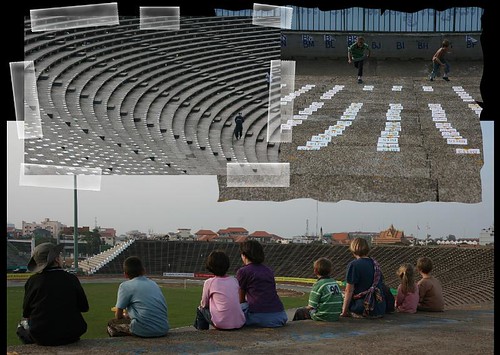
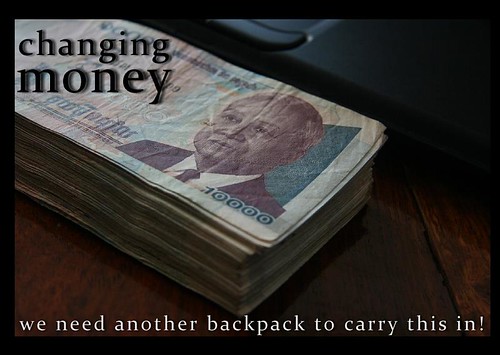
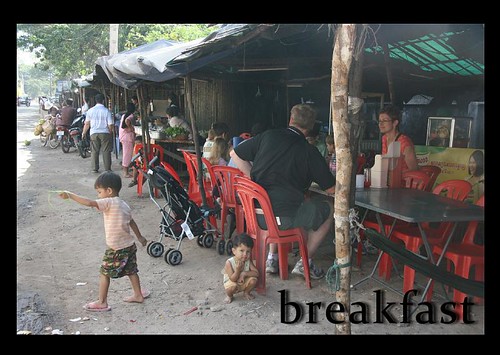
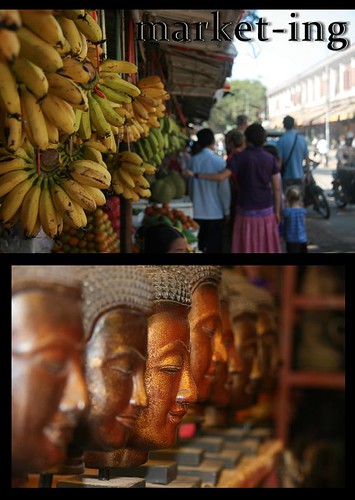
 [Continue reading this entry]
[Continue reading this entry]